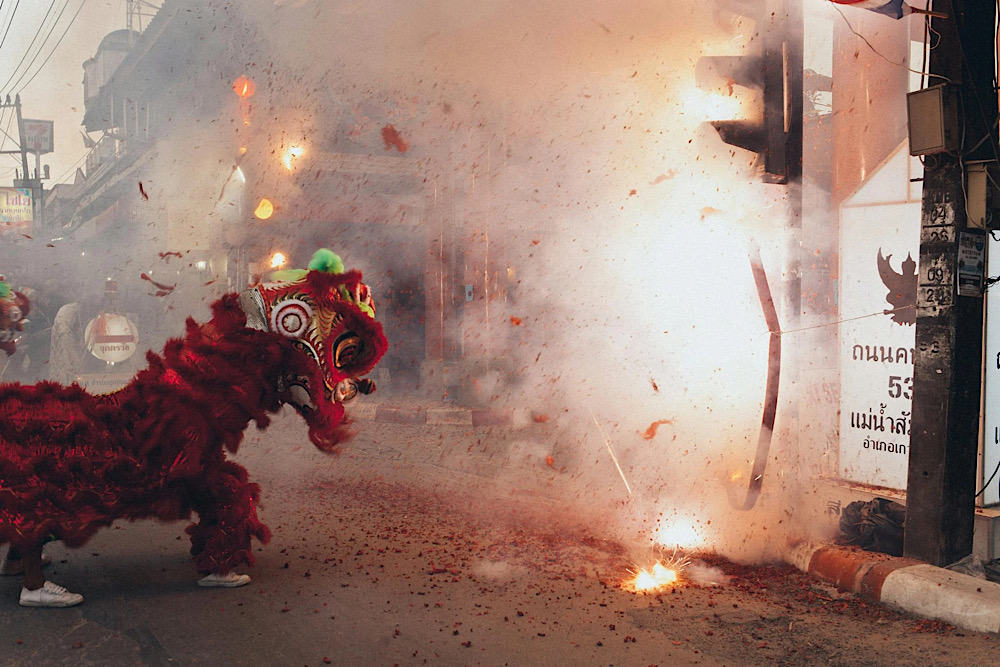Restrictions on slash and burn, fireworks to contain pollution this Lunar New Year
Smog, particulate matter reach record levels in the Thai capital and even the north. Artificial rain, halting vehicular circulation in urban centres, and cleaning of roads in areas with the greatest dust accumulation have been of little avail. More decisive measures are needed, such as renewing the car fleet and getting businesses to reduce energy use.
Bangkok (AsiaNews) – Chinese New Year is also celebrated in Thailand. The holiday is very popular in the country, attracting locals and tourists alike, especially in regions home to some seven million people of Chinese origin who settled in the kingdom in the past.
However, there is a downside. The event generates too much smog in many parts of the country, so much so that the government is urging people to stop or limit the use of incense, fireworks, and burning fake money during the Lunar New Year celebrations.
In a statement yesterday, Deputy Government spokesman Karom Phonphonklang stressed the seriousness of the situation and the need to contain it by any means.
High levels of fine dust, equal to 2.5 microns or less, are particularly harmful to health. High concentrations from vehicular and industrial emissions have kept the capital Bangkok on a state of alert for weeks.
The emergency has not spared the north of the country, especially its largest city, Chiang Mai, which is heavily affected by the burning of harvest residues.
Even this winter, artificially induced rain, restrictions on vehicular traffic in cities, and regular clean-up of streets and roads in areas of high dust accumulation have not been enough. Such measures are temporary and have had a limited impact on pollution.
More permanent action is required, like changes to the car fleet, which is constantly growing and almost exclusively made up of highly polluting combustion engine vehicles; and incentives to businesses in favour of energy conversion, machinery with a lower environmental impact, and less harmful chemical products.
However, few people in government want to implement unpopular measures. Instead, the authorities tend to adopt the same response, namely postpone implementation, and meet businesses’ request for five-year extensions allowing them to put off turning to less polluting sources of energy and productions.
The need for "development” continues to largely ignore environmental compatibility, despite serious forms of air pollution affecting up to 20 million inhabitants, just under a third of the country’s population.
Another example is the practice of open incineration of waste. While this is declining with respect to construction materials, in agriculture, demand for ever-greater output relies on "slash and burn" to free up land after harvests. This is the case of maize production with hundreds of thousands of dedicated hectares added each year.







.png)










